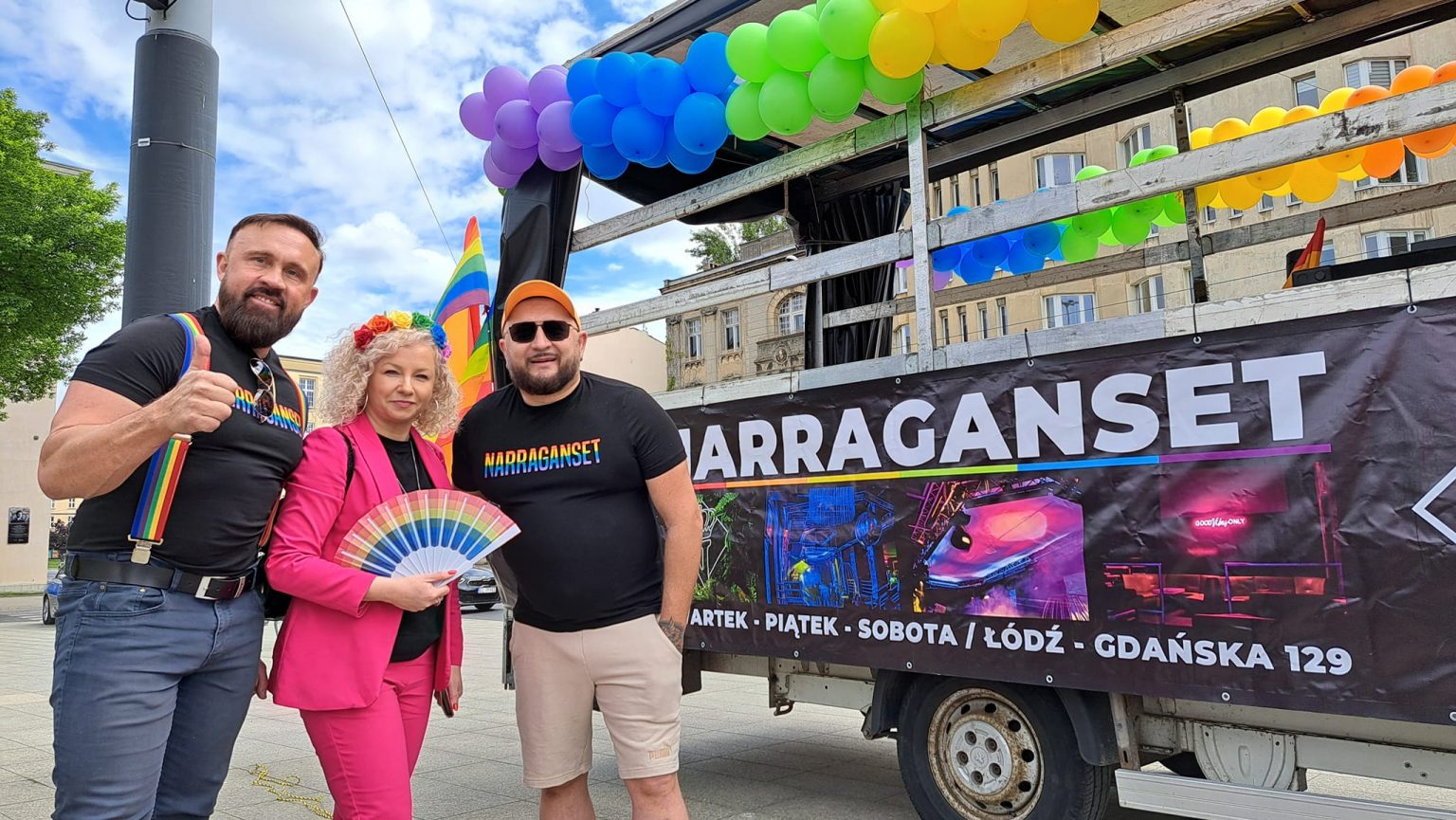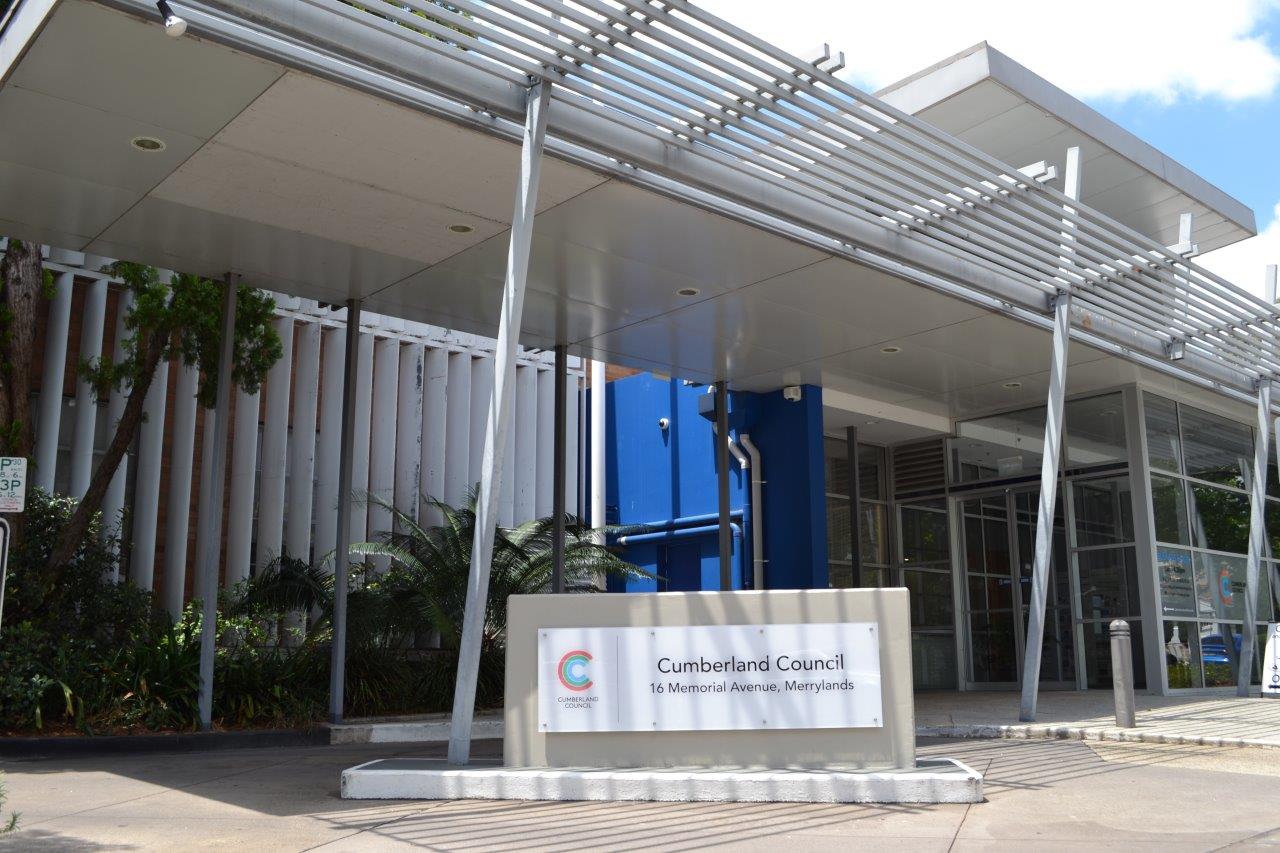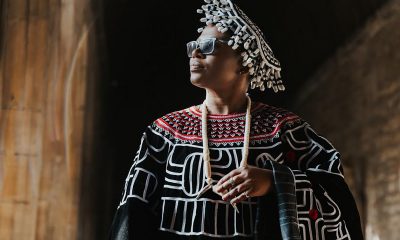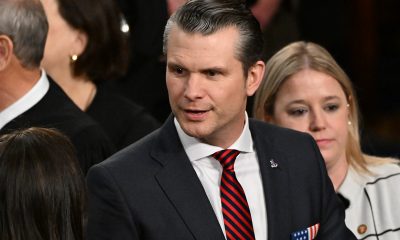World
Out in the World: LGBTQ news from Europe and Asia
Nonbinary Swiss singer Nemo won this year’s Eurovision

EUROVISION

Swiss singer Nemo won the Eurovision Song Contest with their operatic pop-rap song “The Code” about their journey to accepting their nonbinary identity.
“I went to hell and back, to find myself on track, I broke the code,” Nemo sang in the chorus of their winning song.
Dressed in a frilly pink blouse and miniskirt, Nemo dazzled the audience at the Malmö Arena in Sweden, home to last year’s winner, Loreen.
Nemo’s win is the first win for Switzerland since Canadian singer Celine Dion competed under the Swiss flag in 1988.
The Eurovision Song Contest is an annual competition held by the European Broadcasting Union since 1956, in which representatives of all member states present original songs. The entrants are voted upon by a panel of judges and by viewing audiences, who award points to their 10 favorite performances.
Over the years, the competition has become well-known as a camp spectacle and a favorite event for the European LGBTQ community, with many high-profile queer competitors and winners, including Austrian drag queen Conchita Wurst, who returned to this year’s show to perform a tribute to ABBA, who won the competition for Sweden with the song “Waterloo” in 1974.
This year’s UK entrant was nonbinary performer Olly Alexander, formerly of the band Years & Years. Their song “Dizzy,” a homoerotic pop-dance track that featured a quartet of dancing boxers, finished in 18th place with only 46 points, after receiving no points from the voting audience.
This year’s competition was not without controversy.
The venue was met with a large protest demanding that Israel, which has competed in Eurovision since 1973, be removed from the competition due to the ongoing war in the Gaza Strip. Additional security measures were put in place for the competition
Israel’s entrant, Edan Golan, had been a favorite early in the competition, but her song “Hurricane” finished fifth. The song had also drawn controversy, and Golan was ordered to change the title and lyrics by the EBU from “October Rain” due to its references to the Oct. 7 attacks on Israel.
Golan travelled with agents of the Israeli Security Agency Shin Bet after death threats were made on her social media.
Additionally, Dutch performer Joost Klein was disqualified ahead of the final competition after an alleged altercation with a female production staffer that has led to a police investigation.
UNITED KINGDOM

Actor Ian Gelder, best known for his role as Kevan Lannister in the HBO series “Game of Thrones,” has passed away at age 74, five months after he was diagnosed with an aggressive form of cancer.
Gelder’s husband, Ben Daniels, announced his passing in a post on Instagram on Tuesday.
“It is with huge, huge sadness and a heavy heart broken into a million pieces that I’m leaving this post to announce the passing of my darling husband and life partner Ian Gelder,” Daniels wrote in the caption of a photo taken of the couple at Christmas, shortly after Gelder’s first round of treatment for his cancer.
“He was my absolute rock and we’d been partners for more than 30 years. If we weren’t together, we spoke to each other every day. He was the kindest, most generous spirited, and loving human being. He was a wonderful, wonderful actor and everyone who worked with him was touched by his heart and light,” Daniels wrote.
Gelder was diagnosed with bile duct cancer in December. Such cancers are often not detected by health care providers until they have spread to other parts of the body.
Gelder had a long career in film and television and on the British stage, frequently appearing in London’s West End and Shakespeare’s Globe Theatre.
Among his numerous television appearances was a stint on the “Doctor Who” spinoff “Torchwood,” and the celebrated UK sitcom “Absolutely Fabulous.”
POLAND

Declaring that she would “go to hell and make a deal with the devil” to advance the rights of Poland’s LGBTQ community, Equalities Minister Katarzyna Kotula joined the Equality March in Łódź, the country’s fourth-largest city, on May 11.
The march was the 13th edition of the event, and the first time it had been attended by a government minister.
Last year, Poland elected a new government coalition of center-left leaning parties that have pledged to support LGBTQ rights, a sharp contrast to the right-wing, LGBTQ-hostile government that preceded them.
Still, the government has been slow to act on its stated promises to the LGBTQ community, including a law on civil unions, a ban on hate speech, and a gender recognition act, amid squabbling from more conservative members of the coalition.
Kotula has said that she’s waiting to introduce the civil union bill until she can get agreement from the coalition on key sticking points, including adoption rights.
“For civil partnerships, for marriage equality, for the Gender Reconciliation Act, for dignity and human rights for the LGBT community, I will go to hell and make a pact with the devil. I promise that when we meet here next year, at least some of these demands will be implemented,” Kotula said at the march. “I will do everything to take care of your dignity and your safety.”
The organizers of the march, the Equality Factory, are calling for even greater rights, including full marriage equality, abortion and contraception rights, comprehensive sex education in schools, and facilitation of medical treatment for gender transition.
“We are marching because words about equality cannot be thrown around. We are not a bargaining chip. We were promised something and the election promises should be fulfilled. The most important requirement to be implemented is the act on civil partnerships. This is not only about LGBTQ+ people, but also about protecting heterosexual people in relationships, because there is no such thing as cohabitation in Polish law. This should be important for all Poles,” Ida Mickiewicz-Florczak from the Equality Factory told the Polish news site Odaka.
Even if the civil partnership law passes through Parliament, it may face a veto from President Andrzej Duda of the opposition Law and Justice Party, which has vociferously opposed LGBTQ rights. So far, Duda, who will be in office until presidential elections in May 2025, has not indicated how he will act on the bill, stating he’s waiting until it is introduced to comment.
SOUTH KOREA

The Seoul Queer Culture Festival has found a new home after two years of struggle with the city council repeated denying permits for the annual festival.
The Queer Culture Festival had been held at Seoul Plaza at City Hall ever since 2015, but last year it was denied a permit, which the conservative-leaning city council decided to give to a Christian youth concert instead. This year, the city council has announced that the plaza is being used for a outdoor library all through spring and summer, effectively blocking all event applications.
“I think Seoul city is focusing on events that only suit its taste,” Yang Sun-woo, chief organiser of the festival, told Reuters. “If Seoul cared about LGBT people, they would have understood the significance of the event.”
In response, organizers of the Queer Culture Festival have decided this year’s edition will take place on a several blocks in downtown Seoul, which only required the permission of police, rather than city council.
The festival, which takes place over two weeks in June, kicks off with a parade on June 1 and will feature a queer film festival, live performances, and 60 booths for vendors and interactive events.
For its part, Seoul City Council denies that anti-LGBTQ discrimination played a part in its decision to twice deny permits for the event.
The city government said it is “always listening to voices and providing necessary support to protect human rights of LGBTQ people as members of society,” in a statement.
The Queer Culture Festival was also denied a permit by the Seoul History Museum.
The U.S. Embassy in Seoul will also support the event, as it has in previous years.
“As in past years, embassy representatives will join in Pride events worldwide, including here in the Republic of Korea, to raise awareness of the challenges faced by LGBTQI+ individuals,” the embassy told Reuters in a statement.
AUSTRALIA

Cumberland in New South Wales drew international headlines this week after its city council voted 6-5 to ban books on same-sex parenting from local libraries. Four council members were not present for the May 1 vote.
The motion amends the council’s library strategy to order “that council take immediate action to rid same sex parents books/materials in council’s library service.”
The move from the council, which represents around 250,000 people in the western suburbs of Sydney, was swiftly condemned by residents, LGBTQ leaders, and representatives of the state government.
New South Wales Attorney General Michael Daley has referred the motion to the state’s Anti-Discrimination Board for advice, while Arts Minister John Graham has warned the council that the new policy directive puts state library funding for the council in jeopardy, as it would breach public library guidelines. He’s asked council to reconsider the ban.
“It’s a terrible message to send, to have this councilor importing this US culture war into our country and playing it out on the shelves of the local library,” Graham said on a morning television show. “I think the community expectations are clear — the local councilor should be coming around to pick up their bin, not telling them what to read.”
Cumberland’s local council is dominated by the relatively LGBTQ-friendly Australian Labor Party, but the motion from Our Local Government Party Councilor Steve Christou carried with support from Liberal-Party-affiliated Independents and a single vote from a Labor councilor, who has since been condemned by the party.
The move comes just a few months after the same council voted to ban drag queen storytime events at local libraries.
Christou says the motion was inspired after he received complaints from constituents who saw the book “Same-Sex Parents” by Holly Duhig on display in the children’s section of a library. The book explores what it’s like to have two moms or two dads from a child’s perspective.
During the debate on the motion, Christou alleged that the book “sexualized” children and repeated dog-whistle allegations against queer people and parents.
“We’re going to make it clear tonight that … these kind of books, same-sex parents books, don’t find their way to our kids,” Christou said, according to the Guardian. “Our kids shouldn’t be sexualized.”
Christou said the proposed amendment was “for the protection and safety of our children.”
“Hands off our kids,” he repeated.
Christou has said the amendment was demanded by his community, which he says is a “very religious community,” despite the fact that a petition against the amendment garnered more than 10,000 signatures in 24 hours.
“This community is a very religious community, a very family-orientated community.
“They don’t want such controversial issues going against their beliefs indoctrinated to their libraries. This is not Marrickville or Newtown, this is Cumberland City Council.”
The petition was launched by a Cumberland area grandmother to what she describes as a “rainbow family” Caroline Staples. Staples will present her petition to the council on May 15.
Australia
Australian LGBTQ rights group issues US travel advisory
Equality Australia warns transgender, nonbinary people of ‘serious risks’

An LGBTQ rights group in Australia has issued a travel advisory for transgender and nonbinary people who plan to visit the U.S.
Equality Australia on April 14 posted the advisory to its website that states the U.S. government’s policy on visas and Electronic System for Travel Authorization or ESTA “appears to be” the following:
• To use the term “biological sex”
• To only use the gender marker recorded at a person’s birth, even if this differs from their gender
• That valid foreign passports with an ‘X’ gender marker and a valid visa (if needed) may continue to be admitted, however this is contingent upon satisfying inspection of their admissibility by the U.S. Customs and Border Protection officer at the port of entry
• That any previously issued, valid visa may remain current until its expiration date and the visa holder does not need to apply for a new visa with an amended gender marker until the current visa expires (it is unclear whether this applies to ESTAs)
• That new visas will only be issued under the gender marker recorded for the applicant at birth (it is unclear whether this applies to ESTA applications, although only ‘M’ and ‘F’ gender marker options are available for ESTA applications)
• That if consular officers assessing visa applications become aware an application does not contain the gender marker recorded at the applicant’s birth, they should assess additional evidence (such as previous travel records, although the scope is unclear), and/or conduct interviews and
• That where individuals are not using the gender marker recorded at their birth, consular officers should consider classifying the application as procuring a visa through material misrepresentation or fraud, which results in a lifetime bar from the U.S.
President Donald Trump shortly after he took office on Jan. 20 issued an executive order that bans the State Department from issuing passports with “X” gender markers. Secretary of State Marco Rubio in response to directive ordered State Department personnel to “suspend any application requesting an ‘X’ sex marker and do not take any further action pending additional guidance from the department.” A federal judge in Boston on April 18 issued a temporary injunction against the Trump-Vance administration’s directive.
Equality Australia says its advisory is “relevant if you are traveling to the U.S.” and fall under the following criteria:
• Hold a passport with a gender ‘X’ marker
• Have identity documents with gender markers different to those assigned to you at birth, or where other relevant details (such as your name) have been changed
• Have gender markers in your identity documents that do not match your gender expression
• Have a track record of LGBTIQ+ activism or other political activity.
“Travel to the U.S. carries serious risks that should be considered before planning any travel, particularly if you fall under one of the above categories,” reads the advisory.
Germany, Denmark, Finland, and the Netherlands are among the countries that have issued travel advisories for trans and nonbinary people who plan to visit the U.S.
WorldPride is scheduled to take place in D.C. from May 17-June 8.
InterPride, the organization that coordinates WorldPride events, on March 12 issued its own travel advisory for trans and nonbinary people who want to travel to the U.S. Egale Canada, one of Canada’s largest LGBTQ advocacy organizations, in February announced its members will not attend WorldPride and any other event in the U.S. because of the Trump-Vance administration’s policies.

Pope Francis died on Monday at his official residence at the Vatican. He was 88.
Cardinal Kevin Farrell, the Vatican camerlengo, said Francis passed away at Casa Santa Marta at 7:35 a.m. local time (1:35 a.m. ET.)
“His entire life was dedicated to the service of the Lord and of his church,” said Farrell. “He taught us to live the values of the Gospel with fidelity, courage, and universal love, especially in favor of the poorest and most marginalized. With immense gratitude for his example as a true disciple of the Lord Jesus, we commend the soul of Pope Francis to the infinite merciful love of the one and triune God.”
Francis, a Jesuit who was previously known as Jorge Mario Bergoglio, was born in Buenos Aires to Italian immigrant parents in 1936. He became archbishop of the Argentine capital in 1998.

Pope John Paul II in 2001 appointed him cardinal. The College of Cardinals in 2013 elected Francis to succeed Pope Benedict XVI after he resigned.
Francis vehemently opposed Argentina’s marriage equality law that then-President Cristina Fernández de Kirchner signed in 2010. Francis as pope backed civil unions for gays and lesbians and in 2023 said priests can bless same-sex couples.
Francis in 2023 said laws that criminalize homosexuality are “unjust.” He appointed Robert McElroy, an LGBTQ-friendly cardinal from San Diego, as the new archbishop of Washington.
The pontiff in 2015 met with a group of gay, transgender, and HIV-positive prisoners in the Italian city of Naples. A Vatican charity in 2020 gave money to a group of trans sex workers in Italy who were struggling to survive during the COVID-19 pandemic.
Francis last October met with a group of trans and intersex Catholics and LGBTQ allies at the Vatican. GLAAD President Sarah Kate Ellis and Juan Carlos Cruz, a gay Chilean man who is a clergy sex abuse survivor, are among those who also met with Francis during his papacy.
Church teachings on homosexuality and gender identity, however, did not change.
“From the early months of his papacy when he uttered the now-iconic ‘Who am I to judge?’ in response to a question about accepting gay priests, through numerous affirming pastoral messages to individual LGBTQ+ people, to his support for civil unions, and his condemnation of criminalization laws, Pope Francis has changed the church irreversibly by allowing people to see how their Catholic faith requires acceptance and equality,” said Francis DeBernardo, executive director of New Ways Ministry, a Mount Rainier, Md., based LGBTQ Catholic advocacy organization, in a statement.
DignityUSA Executive Director Marianne Duddy-Burke met Francis in 2023.
The group in a statement acknowledged the pontiff’s “legacy on LGBTQ+ issues is complicated,” noting “even with the recognition of so many positive words and actions, church teachings and even some recent Vatican documents remain problematic.” DignityUSA President Meli Barber nevertheless praised Francis.
“We also recognize that Pope Francis has raised awareness of LGBTQ+ issues in our church in truly unprecedented ways,” said Barber. “He spoke about us using our own terms and made a point of being seen meeting with LGBTQ+ people frequently. This sent a message of recognition and inclusion we never experienced from the Vatican before.”

Pope’s legacy is ‘mixed’
Activists in Argentina and around the world also mourned Francis.
“We mourn his death and embrace the people who are suffering today because of his passing,” LGBT Federation of Argentina President María Rachid told the Washington Blade.
Dindi Tan, national president of LGBT Pilipinas in the Philippines, on her Facebook page wrote Francis “was unafraid to challenge age-old dogmas and to ‘rattle’ the cage.” Pedro Julio Serrano, president of the Puerto Rico LGBTQ+ Federation, said Francis was an “ally of equity, humanity and dignity of LGBTQ+ people, not only during his pontificate, but throughout his life.”
Peter Tatchell, a long-time LGBTQ activist from the U.K. who is director of the Peter Tatchell Foundation, in a statement acknowledged Francis’s “more compassionate tone towards sexual minorities” that includes blessings for same-sex couples. Tatchell, nevertheless, pointed out the Vatican under Francis’s papacy continued to oppose marriage equality and trans rights.
“The Catholic Church remains a force for discrimination and suffering,” said Tatchell. “Under his leadership, the Vatican continued to oppose same-sex marriage and trans rights. Catholic bishops lobbied against the decriminalization of homosexuality in many parts of the world. The Vatican still upholds the homophobic edicts of the Catechism, which denounces the sexual expression of same-sex love as a ‘grave depravity’ and ‘intrinsically disordered.’ Francis’s legacy is, therefore, a mixed one — offering some progress but leaving deep-rooted inequalities largely intact.”
Vance met with Francis on Easter Sunday
Francis earlier this year spent more than a month in a Rome hospital after he developed double pneumonia.

He met with Vice President JD Vance at the Vatican on Easter Sunday, hours before his death.
The pope had previously criticized the Trump-Vance administration over its immigration policies.
“I just learned of the passing of Pope Francis,” said Vance on X after the Vatican announced Francis’s death. “My heart goes out to the millions of Christians all over the world who loved him.”
I just learned of the passing of Pope Francis. My heart goes out to the millions of Christians all over the world who loved him.
I was happy to see him yesterday, though he was obviously very ill. But I’ll always remember him for the below homily he gave in the very early days…
— JD Vance (@JDVance) April 21, 2025
Argentine President Javier Milei, who previously criticized Francis, mourned him in a statement he posted to X. Milei also announced Argentina will observe seven days of mourning.
“It is with profound sorrow that I learned this sad morning that Pope Francis, Jorge Bergoglio, passed away today and is now resting in peace,” said Milei. “Despite differences that seem minor today, having been able to know him in his goodness and wisdom was a true honor for me.”
“As president, as an Argentine, and, fundamentally, as a man of faith, I bid farewell to the Holy Father and stand with all of us who meet today with this sad news,” he added.
ADIÓS
Con profundo dolor me entero esta triste mañana que el Papa Francisco, Jorge Bergoglio, falleció hoy y ya se encuentra descansando en paz. A pesar de diferencias que hoy resultan menores, haber podido conocerlo en su bondad y sabiduría fue un verdadero honor para mí.… pic.twitter.com/3dPPFoNWBr— Javier Milei (@JMilei) April 21, 2025
Mexico
Gay couple claims Puerto Vallarta wedding venue discriminated against them
Jeremy Alexander and Ryan Sheepwash wanted to get married at Sheraton hotel

A gay couple claims a hotel in a Mexican resort city that is popular with LGBTQ travelers discriminated against them when they tried to book their wedding.
Jeremy Alexander and Ryan Sheepwash in a TikTok video said they contacted the Sheraton Buganvilias Resort and Convention Center in Puerto Vallarta about holding their wedding at the property.
The couple, who live in Vernon, British Columbia, provided the Washington Blade with an invoice that Gabriela Espinoza, a wedding planner at the property, sent them on Jan. 17, 2025.
The invoice said 25 “deluxe ocean view room — all inclusive” rooms cost $970 a night. The total cost for the 25 rooms was $72,750.
Alexander in the TikTok video said it took Espinoza three months to send them the quote. The property, according to Alexander, requested a $36,000 deposit for half of the rooms.
“It’s not reasonable,” he said. “No one can afford that.”
Alexander said Espinoza told him and Sheepwash that the earliest they could have their wedding at the property was March 2027. Alexander in the TikTok video said he and Sheepwash asked a straight friend to “request a quote just to see apples to apples what it looks like.”
Ximena Esparza, another wedding planner at the property, on Feb. 7, 2025, sent the friend a quote for 25 rooms for a hypothetical wedding that was to have taken place from Feb. 19-26, 2026.
The quote for a “deluxe package” for 50 people was $8,500 and required a 20 percent deposit of $1,700.
“We just feel defeated,” said Sheepwash in the TikTok video. “It’s not fair because we love each other and we really want to get married, and we want to make it special and we want to make it perfect.”
@illuminaughtytriangle So disappointed that my fiancée and I got discriminated against by #Sheraton in #puertovallarta ♬ original sound – Jeremy Alexander
The Blade in 2019 reported the Sheraton Buganvilias Resort and Convention Center refused to allow Josh Rimer, a gay Canadian vlogger and television host who is also Mr. Gay Canada 2019, and his then-fiancé to hold their wedding at the property.
The invoice that Espinoza sent to Alexander and Sheepwash notes the hotel is “operated under license from Marriott International, Inc., or one of its affiliates.”
A spokesperson for Marriott, which is based in Bethesda, Md., and is Sheraton’s parent company, in response to Rimer’s allegation said the corporation reached out to him to express “our sincerest apologies for his experience.”
“We are troubled and greatly concerned about the experience reported by Mr. Rimer. Marriott has long been committed to providing an environment where all are welcome including our LGBTQ guests and their loved ones,” said the spokesperson. “In addition, we are looking further into the matter to better understand what happened and do what we can to prevent hurtful experiences like this from happening again.”
A Marriot spokesperson on Thursday told the Blade the company has “reached out to Mr. Sheepwash and Mr. Alexander to learn more about their experience and are working with the property to offer a solution.”
“The Sheraton Buganvilias has been active in the LGBTQ+ community in Puerto Vallarta for years, hosting LGBTQ+ weddings and groups and also supporting Pride events in Puerto Vallarta,” said the spokesperson. “Marriott remains steadfast in our commitment to ensure guests are treated with respect and understanding.”
-

 Obituary4 days ago
Obituary4 days agoLocal attorney, LGBTQ rights advocate Dale Sanders dies at 75
-

 U.S. Federal Courts3 days ago
U.S. Federal Courts3 days agoFederal judge blocks Trump passport executive order
-

 Mexico4 days ago
Mexico4 days agoGay couple claims Puerto Vallarta wedding venue discriminated against them
-

 Books3 days ago
Books3 days ago‘Pronoun Trouble’ reminds us that punctuation matters










